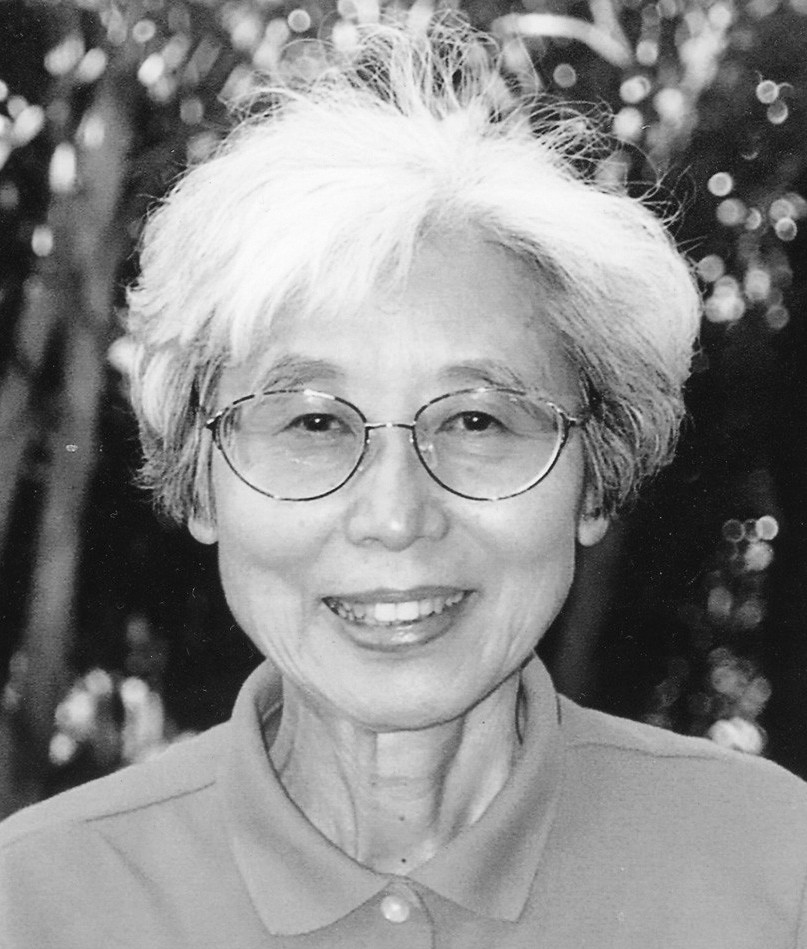
タキエ・スギヤマ・リーブラ
Takie Sugiyama Lebra, 1930-2017

★タキエ・スギヤマ・リーブラ(すぎやま たきえ、1930年2月6日 - 2017年5月26日)は、日本の人類学者、教授である。彼女の「日本の人類学への貢献は、基礎的なものとみなされている」
| Takie
Sugiyama Lebra (February 6, 1930 – May 26, 2017) was a Japanese
anthropologist and professor. Her “contributions to the anthropology of
Japan are regarded as foundational”.[1] She was born in a rural village in Shizuoka Prefecture, Japan. She attended primary school in Japan, graduating from Tsuda College in Tokyo in 1951. She graduated from Gakushuin University in Tokyo with a BA in Political Science in 1954 and then completed her studies at the University of Pittsburgh, receiving an MA in Political Science in 1960 and a PhD in Sociology (also from the University of Pittsburgh) in 1967.[1] Lebra was a professor in the Department of Anthropology at the University of Hawaii from 1971 until her retirement in 1996. She also held visiting positions at the University of Washington, the University of Michigan, Oxford Brookes University, Harvard University, and the National University of Singapore. She was a popular teacher with her courses (especially in Japanese Studies) attracting many students.[1] While teaching in Hawaii, she was a specialist of Japan, of psychological anthropology and of culture and social organization.[2] She was also an author, having written 7 books about Japanese culture and selling over 66,000 copies.[3] She has won multiple awards, including a John Simon Guggenheim Fellowship, a Fulbright Council for International Exchange, a Wenner-Gren Foundation for Anthropological Research, a Japan Foundation Research Fellowship. She also received awards from the Joint Committee on Japanese Studies of the American Council of Learned Societies and the Social Science Research Council. She was a board member for the Society for Psychological Anthropology, the US-Japan Women’s Journal and the Journal of Japanese Studies.[1] Her 1995 book Above the Clouds, Status Culture of the Modern Japanese Nobility was the first ethnographic study of the modern Japanese aristocracy, in which she explained the Kazoku, the hereditary peerage of the Empire of Japan.[4] An obituary sums up her career as follows: “Takie Lebra will be remembered for her feistiness that combined probing intellect with humor. For her many students and colleagues, she demonstrated that the life of the mind should never forget the body, that we are driven as whole creatures that embrace emotions, relationships, institutions, and ideas. She taught that we are only and always too human, and in the end, that may be enough.” [1] |
タキエ・スギヤマ・リーブラ(すぎやま たきえ、1930年2月6日
- 2017年5月26日)は、日本の人類学者、教授である。彼女の「日本の人類学への貢献は、基礎的なものとみなされている」[1]。 彼女は日本の静岡県の農村で生まれた。日本の小学校に通い、1951年に東京の津田塾大学を卒業した。その後、ピッツバーグ大学で学び、1960年に政治 学修士、1967年に社会学博士(同じくピッツバーグ大学)[1]を取得した。 1971年から1996年に退職するまで、ハワイ大学人類学部の教授を務めた。また、ワシントン大学、ミシガン大学、オックスフォード・ブルックス大学、 ハーバード大学、シンガポール国立大学でも客員教授を務めた。ハワイで教鞭をとる傍ら、日本、心理人類学、文化・社会組織の専門家として活躍し、日本文化 に関する著書は7冊、66,000部を超える[3]。 ジョン・サイモン・グッゲンハイム・フェローシップ、フルブライト国際交流協議会、ウェナー・グレン人類学研究基金、国際交流基金研究助成など複数の受賞 歴がある[4]。また、アメリカ有識者会議日本研究合同委員会、社会科学研究評議会からも賞を授与されている。1995年に出版された『雲の上の存在、近 代日本貴族の身分文化』は、近代日本の貴族に関する初の民族誌的研究であり、大日本帝国の世襲貴族である「華族」について解説している[4]。 死亡記事は彼女の経歴を次のように要約している。「タキー・レーブラは、鋭い洞察力とユーモアを併せ持つ気骨のある女性として記憶されるだろう。彼女は多 くの学生や同僚に対して、心の生活は決して身体を忘れてはならないこと、人間は感情、人間関係、制度、思想を包含した全体的な生き物として動かされること を示したのである。彼女は、私たちはただ、そして常に、あまりにも人間的であり、最後にはそれで十分なのかもしれないと教えてくれたのです」。[1] |
| https://en.wikipedia.org/wiki/Takie_Lebra |
https://www.deepl.com/ja/translator |
雲上人として特殊な文化を育んできた貴族階級=華族 の実態はどのようなものであったのか。現在の目でその姿を再構成し、身分文化の意味と中流・庶民階級への影響を探る。アメリカ大学出版協会有沢広巳記念賞 受賞作。
+++
Links
リンク
文献
その他の情報



Copyleft, CC, Mitzub'ixi Quq Chi'j, 1996-2099
☆
 ☆
☆